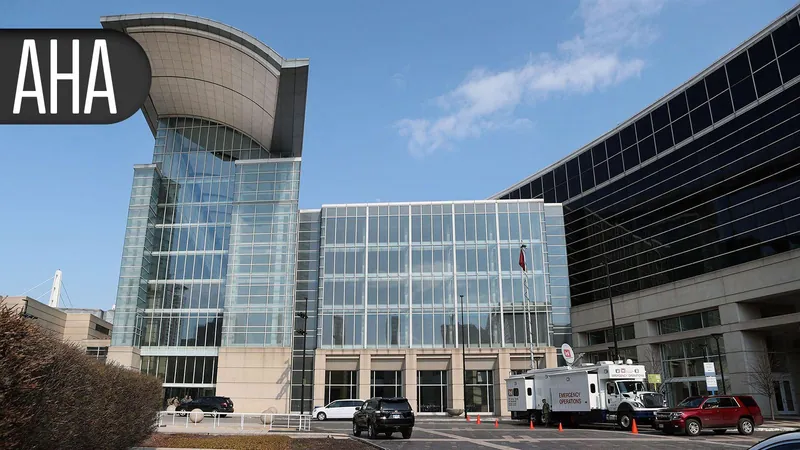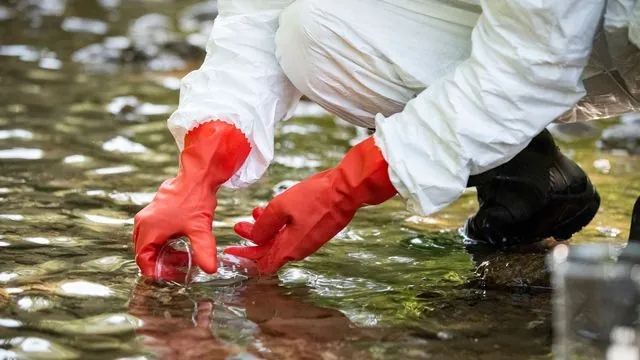
Remarkable Safety Data Shows Reused Pacemakers Could Be Lifesavers in Developing Countries
2024-11-18
Author: Siti
Introduction
In a breakthrough announcement at the American Heart Association (AHA) annual meeting, researchers revealed that reconditioned permanent pacemakers are proving to be as safe as new devices for patients in impoverished countries, where access to affordable medical care is limited. The findings are a significant step towards improving cardiovascular health care accessibility globally.
Study Presentation
Dr. Thomas Crawford from the University of Michigan Health in Ann Arbor presented interim data from the My Heart Your Heart trial, indicating that there have been no adverse effects associated with the use of secondhand pacemakers after rigorous cleaning and repackaging. The trial tracked infection rates within 90 days of implantation, showing a non-inferior safety profile for reconditioned devices (1.5% infection rate) compared to their brand-new counterparts (2.9%).
Key Comparing Outcomes at 90 Days
- **Infection requiring antibiotics and removal**: 2.2% (used) vs. 1.5% (new) - **Cellulitis resolved with antibiotics**: 0.7% (used) vs. 0% (new) - **Lead dislodgment**: 5% (used) vs. 7.3% (new) - **Pacemaker removal**: 2.2% (used) vs. 1.5% (new) - **Death within 90 days**: 0% (used) vs. 2.2% (new)
Significance of Reconditioned Pacemakers
Crawford emphasized the potential for repurposed pacemakers to address the dire need for affordable heart treatments in developing nations where new devices can cost upwards of $2,000. In contrast, reconditioned devices may be offered at just $50 to $100 each, making significant strides toward reducing health disparities.
Praise from Experts
Dr. Miguel Leal from Emory University praised the initiative as a model of equitable access and social justice in healthcare, highlighting the necessity for more trials of this nature. With positive preliminary results, the My Heart Your Heart trial bolsters the case for a broader implementation of reconditioned pacemaker use across various health centers.
Trial Details
The My Heart Your Heart is a randomized, single-blind trial operating in Venezuela, Nigeria, Paraguay, Kenya, Mozambique, and Mexico. To participate, sites needed to demonstrate the availability of qualified healthcare professionals and proper facilities. Researchers faced numerous logistical challenges, including obtaining FDA export permits and necessary approvals from foreign governments.
Collaboration and Patient Education
"The collaboration among U.S. institutions, charities, and international entities shows promise for large-scale pacemaker reconditioning," Crawford noted. The study involved 298 patients, aged approximately 70 and evenly divided between genders, who required bradycardia pacing due to financial constraints. Significantly, the trial also aimed to educate patients about the existence and benefits of pacemakers. In many of the countries involved, doctors must introduce this life-altering technology to those who may never have heard of such devices before.
Future Directions
While the initial results are encouraging, longer-term follow-up will be essential to fully assess the viability and safety of reconditioned pacemakers. Key endpoints will measure freedom from infection and device malfunctions over 12 months. Furthermore, experts call for increasing the number of trained healthcare professionals in regions where the need is greatest. Leal pointed out that while the U.S. trains about 120 electrophysiologists annually, many countries lack even one qualified expert, underscoring the urgent need for initiatives like My Heart Your Heart.
Conclusion
This exciting research offers hope for many living in low- and middle-income countries, potentially changing the landscape of cardiac care and improving the quality of life for countless individuals. Stay tuned as we bring more updates on the full 12-month results and their implications for global healthcare access!

 Brasil (PT)
Brasil (PT)
 Canada (EN)
Canada (EN)
 Chile (ES)
Chile (ES)
 España (ES)
España (ES)
 France (FR)
France (FR)
 Hong Kong (EN)
Hong Kong (EN)
 Italia (IT)
Italia (IT)
 日本 (JA)
日本 (JA)
 Magyarország (HU)
Magyarország (HU)
 Norge (NO)
Norge (NO)
 Polska (PL)
Polska (PL)
 Schweiz (DE)
Schweiz (DE)
 Singapore (EN)
Singapore (EN)
 Sverige (SV)
Sverige (SV)
 Suomi (FI)
Suomi (FI)
 Türkiye (TR)
Türkiye (TR)